UIlr is the Norse god of winter, hunting, skiing, and archery who also ruled over Asgard, the home of the most powerful Norse gods when Odin was not there.
Much of what is known today about Ullr, and many other Norse gods, is shrouded in mystery as a result of oral storytelling. But what we do know suggests he was a critical member of the Ancient Norse pantheon and mythology.
Table of Contents
Who Was Ullr?
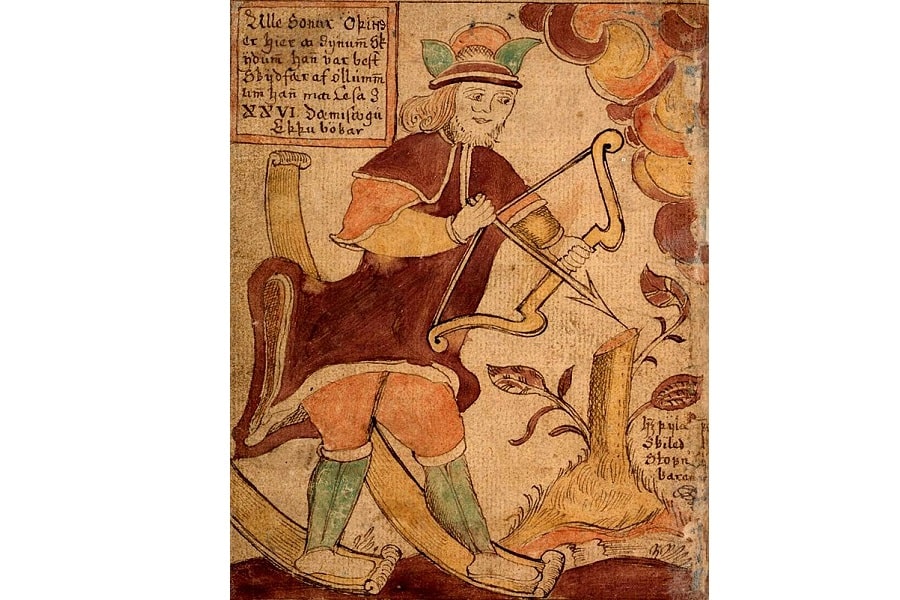
Ullr was a Norse god associated with winter, skiing, archery, and hunting. He was without a doubt an important god, considering several locations across northern Europe are named after him. Because of his status as a winter god, many worshippers would pray to Ullr before undertaking travel in the harsh winter.
He resided at his hall Ydalir, which translates to Yew Dales: yew wood was the material of choice for making bows in ancient Scandinavia. In addition to being a legendary archer and a true deity on the ski slopes, Ullr is also known as the god of oaths and combat. It is said all oaths were taken on Ullr’s ring, which would shrink down to sever one’s finger should they break their oath.
Ullr was a warrior as well and was often invoked before individual combat or duels. Described as a beautiful and decorated warrior by the Prose Edda, it seems as though Ullr had great importance in the pantheon, but was lost to time due to oral tradition.
READ MORE: Ancient War Gods and Goddesses: 8 Gods of War from Around the World
What Does Ullr Mean?
While scholars are not completely certain of the meaning of Ullr’s name, the closest translation to Gothic suggests the meaning “glory,” while in Old English, “fame.” This further suggests Ullr’s importance to Norse Mythology, as the Norse god of glory would certainly play a critical role.
This also suggests Ullr’s link to combat: described as an accomplished warrior himself, Ullr’s association with fame and glory would make him an excellent god to pray to before battle.
There is also an association between Ullr and duels, harkening back to his importance in oaths and suggesting his importance to law and order in ancient Scandinavia, as many personal and legal disputes were settled with duels.
Ullr’s skill with a bow only adds to this description: his ability to shoot while on skis, and his association with hunting, likely brought him untold glory in the mythology. Even in modern days, many celebrate Ullr’s name: Breckenridge Ski Resort in Colorado has hosted “Ullr Fest” since 1963.
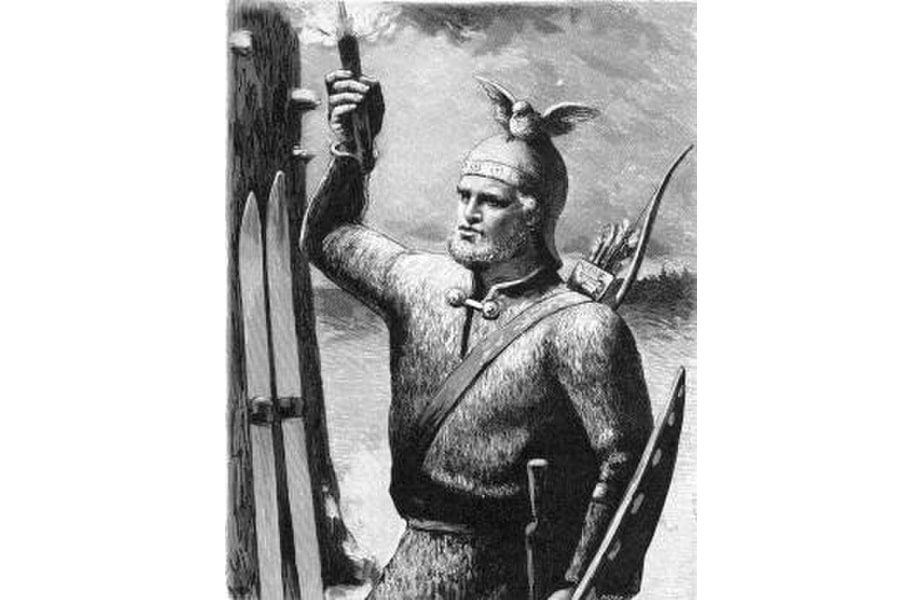
Who is Ullr’s Family?
Ullr is the son of Sif: his father is unknown, although there is much speculation about who he might be, considering Ullr’s incredible abilities with archery and skiing.
This also makes him the stepson of Thor, the God of Thunder. His status as a relative of Odin is another strong indicator of his importance in Norse Mythology.
Viktor Rydberg, a scholar from Sweden, speculates in his text Teutonic Mythology that Ullr’s father was Egill-Örvandill, a legendary archer in the mythology, to explain Ullr’s own ability. However, there is no record in the Old Norse texts.
Some sources suggest Ullr married Skadi, judging by their similarities as gods of skiing and hunting. This leads to some confusion between him, Njord, and Skadi, which adds to the mystery surrounding this figure.
What Else Do We Know about Ullr?
Because of the mystery surrounding Ullr, not much is known about his deeds and actions in the mythology. His lack of presence in the texts suggests that Ullr was an older deity, whose importance in the mythology had waned over generations of oral tradition. This would explain why he is not prominently featured in the medieval Old Norse texts.
READ MORE: Pagan Gods from Across the Ancient World
Ullr is briefly mentioned several times in the Poetic Edda, which brings up his ring, his home, and his status as a god. In the Prose Edda, he is described as the son of Sif, and a beautiful warrior. In other poems, there seems to be a repeated phrase: Ullr’s ship, which references a shield.
Because of these fleeting references, we don’t know much else about Ullr. He was an excellent archer and the Norse god of choice for modern-day day skiers. But his history seems shrouded in mystery.
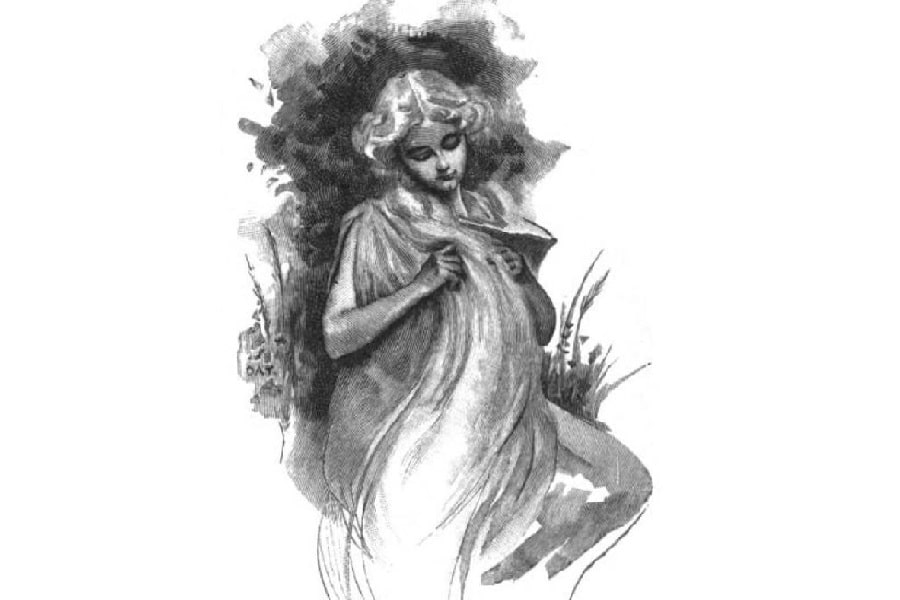
What Was Ullr the God Of?
Ullr was the god of winter, snow, skiing, archery, and hunting. But Norse deities are not exactly the masters of these elements: rather, they are associated with them, and thus prayers are offered based on their associations. He was a highly regarded archer, a legendary hunter, and a true god on his skis. He could also be associated with mountains.
Ullr was also the god of ring oaths and vows, with his magical ring as their symbol. This leads some to believe he may have been associated with law, justice, and order in the older mythology.
Is Ullr Part of the Aesir or Vanir?
The distinctions between the Aesir and Vanir are nebulous, but still played an important role in the Norse Pantheon. The Aesir are described as valuing strength, power, and war, while the Vanir value nature, mysticism, and harmony.
There is some debate as to whether or not Ullr is part of the Aesir or Vanir. However, considering Ullr is the son of Sif and stepson of Thor and may have once ruled over Asgard, it is likely that Ullr was part of the Aesir group of gods.
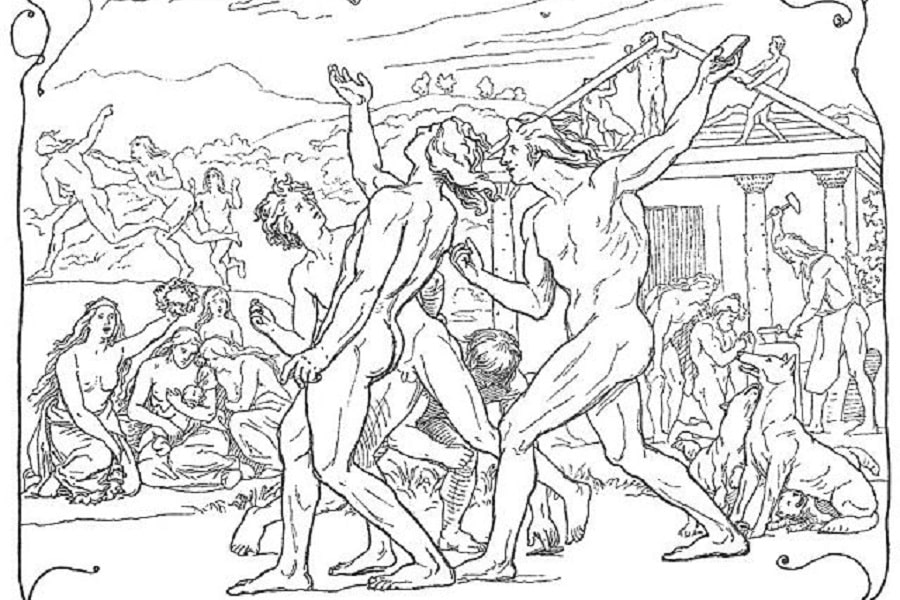
Ullr in Mythology
Ullr is briefly mentioned in mythology, often in passing or as a reference. Because of his potential status as an older deity, this makes sense: his presence establishes the wider lore of the mythology, even if his own adventures were unknown. Despite this, we can piece together the little we know about this deity through the fleeting mentions in the texts.
Poetic Edda
The Poetic Edda is a collection of untitled, anonymously written Old Norse poems. They feature many of the key figures in Norse mythology. Ullr is no exception, although his appearances seem to be more like set dressing. Nevertheless, they confirm some aspects of Ullr that we know today.
Most important is the reference to Ullr’s ring when swearing an oath: this confirms that Ullr may have had some greater role in the past as a god of justice or vows.
The Poetic Edda also mentions Ydalir, his Yew wood hall. This is, again, another reference to his abilities in archery and hunting.
Prose Edda
Ullr’s appearance in the Prose Edda is once again highly limited, but provides us with a solid description: he is a warrior, an excellent archer, and quite good looking too.
“He is such a good archer and ski-runner that no one can rival him. He is beautiful to look at as well and he has all the characteristics of a warrior. It is also good to call on him in duels.”
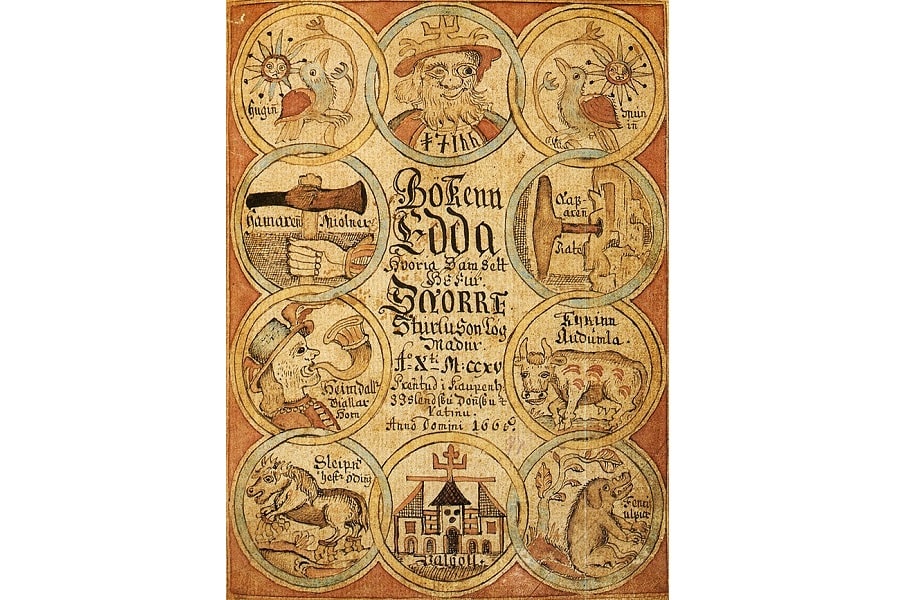
Ullr in Toponymy
There’s one thing that isn’t mysterious about Ullr: his influence across the mountains of Scandinavia and Northern Europe is clear.
In fact, it’s through these place names that historians were able to understand Ullr and his importance. With over 20 places taking the name of Ullr, there’s definitely a hidden importance to this god.
Places named after Ullr are often hills or mountains, once again belying his importance to these prominent features of the Scandinavian landscape, but he’s also referenced by farms, hills, and towns.
Ullr: A Divine Twin?
Some theorists hypothesize that Ullr was a divine twin of another deity. He shares many similarities with Skadi, who some sources suggest he married. Others contend that Ullr and Skadi could have been one and the same.
Some claim suggest Ullr had a twin: Ullin. (source) This is strengthened by the fact that some places bearing Ullr’s name are spelled in this feminized form. Others still suggest Ullr was Heimdall, or a twin of Njord ruling the skies instead of the seas, who was then supplanted in the lore by Skadi.
Because we do not have enough information about Ullr, these questions continue to shroud his identity. Scholars can theorize, but without the ability to listen to these stories in their original tellings, the truth is likely lost to time.
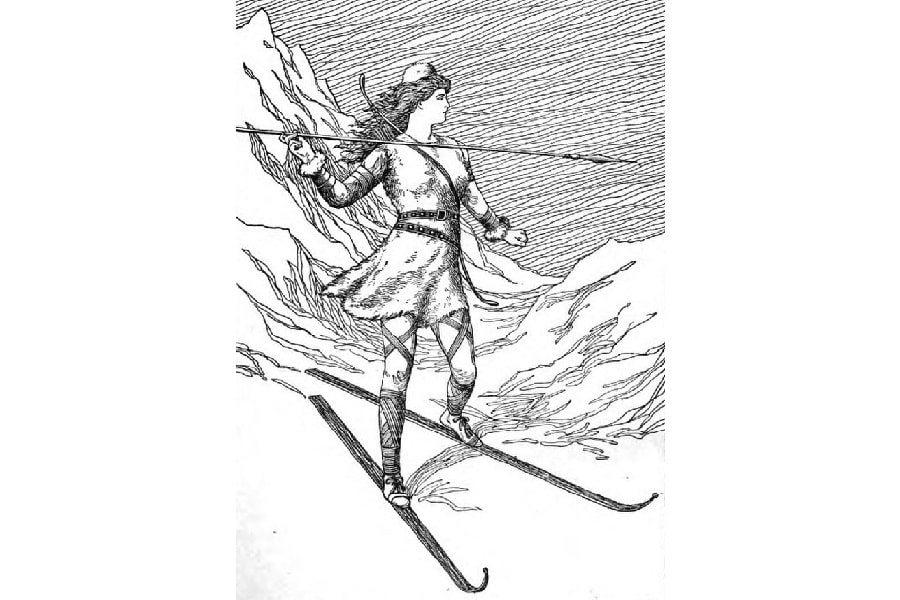
Ullr in Popular Culture
Although Ullr may not have been a prominent figure in our records, he certainly retained his influence in popular culture. Thanks to Ullr’s association with skiing, skiers around the world keep his memory alive.
Whether it’s Ullr Fest in Colorado, or ski hills across North America, Europe, and beyond, the legend of Ullr lives on. During periods of poor snowfall, enthusiasts will call on Ullr to this day, asking for the blessing of more snow.
In Europe, Ullr is considered the Guardian Patron Saint of Skiers, and folks will often wear his image on a medallion as a talisman for good fortune.
Piecing It All Together
Considering everything, it’s clear UIlr had an outsized influence on Nordic myths, and indeed, the world itself: he did, after all, rule Asgard in Odin’s stead for some time.
Nevertheless, the shadow of the myth looms large over what we truly know: Ullr was an important god, a god of winter, a legendary archer, hunter and skier, a lord of snow, fog, and cold, a hunter and a warrior.